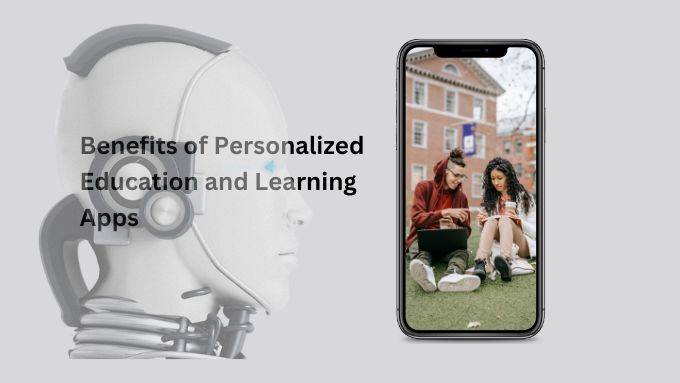
What is personal education and its importance in modern education.
Basically it refers to an educational approach that aims to customize learning methods to each student’s unique needs, abilities and interests.
In personalized learning, the student’s learning style, learning pace, strengths, weaknesses, and personal interests all get a learning plan based on what they know and how they learn best. In personalized learning, the student’s learning needs and abilities and interests are modeled.
This approach often utilizes technology, data analysis, and adaptive learning tools to design curriculum and activities that cater to each student’s unique requirements. It aims to enhance student engagement, motivation, and ultimately their learning outcomes.
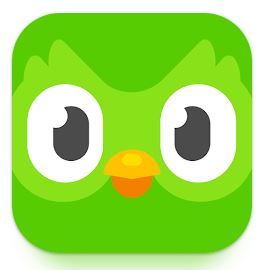
Duolingo – Languages App
17.3M reviews
100M+ Downloads

Math & Science Tutor
2.91K reviews
500K+ Downloads
The benefits of personalized learning
- Individualized Learning: Students have diverse learning preferences and strengths. Personalized education acknowledges these differences, allowing students to learn in ways that suit them best.
- Improved Learning Outcomes: When students are engaged and motivated by learning materials that align with their interests and abilities, they are more likely to grasp and retain knowledge effectively, leading to better academic results.
- Flexibility and Adaptability: Personalized education allows for flexible pacing. Students can move ahead if they grasp concepts quickly or receive extra support if they need more time to understand.
- Global Learning Opportunities: Online resources and platforms enable students to connect with peers from around the world, fostering cross-cultural understanding and global perspectives.
- Enhanced Engagement: Tailoring content to individual interests can boost student engagement, making learning more enjoyable and meaningful.
- Addressing Learning Gaps: Personalized education can help identify and address learning gaps early on, preventing students from falling behind and ensuring they have a solid foundation.
- Preparation for the Future: In a rapidly changing world, students need to develop skills that suit their personal career goals. Personalized education can help nurture these skills, preparing students for their future careers.
- Teacher-Student Relationships: With smaller class sizes and more individualized attention, teachers can build stronger relationships with students, fostering a more supportive and collaborative learning environment.
- Lifelong Learning: By promoting self-directed learning and critical thinking skills, personalized education equips students with the tools to continue learning throughout their lives.
Overall, personalized education recognizes the uniqueness of each learner and seeks to optimize their educational journey, ultimately leading to more effective and fulfilling learning experiences.
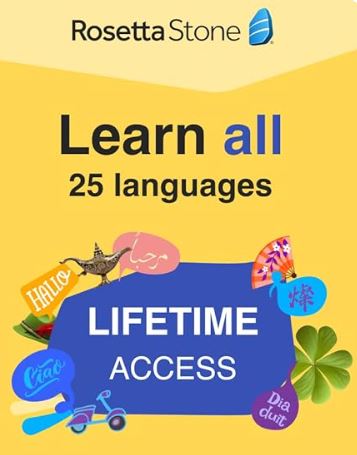
Rosetta Stone – Learn about 25 languages in one app.
Price: $189
Support Platform: Windows 8, Windows 10, Mac OS X, Windows 11, Windows 7, Android, Mac OS Catalina 10.15, Mac OS X 10.9 Mavericks
The role of technology and mobile apps in changing the traditional education system
1. Access to Information: Technology has made information readily accessible. Students no longer rely solely on textbooks and classroom lectures; they can access a wealth of information online, enabling them to explore topics beyond the confines of traditional curriculum.
2. Flexibility and Convenience: Mobile apps and online platforms provide the flexibility to learn anytime, anywhere. This convenience is particularly valuable for individuals who have other commitments, such as work or family responsibilities.
3. Personalized Learning: Adaptive learning technologies and educational apps use data analytics to customize learning experiences based on individual strengths, weaknesses, and learning styles. This tailoring helps optimize learning outcomes.
4. Interactive and Engaging Content: Technology enables the creation of interactive and multimedia-rich learning materials that engage students and enhance understanding. Videos, simulations, and gamified elements make learning more enjoyable and effective.
5. Global Learning Communities: Online platforms connect students and educators from around the world, fostering global learning communities. This exposure to diverse perspectives enriches the educational experience.
6. Remote and Online Learning: The rise of online courses, webinars, and virtual classrooms has enabled remote learning opportunities, breaking down geographical barriers and expanding educational access.
7. Self-Paced Learning: Technology allows for self-paced learning, accommodating various learning speeds. Students can revisit content as needed, ensuring a thorough understanding before moving on.
8. Instant Feedback: Digital assessment tools and quizzes provide immediate feedback to students, allowing them to identify areas that need improvement and adjust their learning strategies accordingly.
9. Teacher Support and Professional Development: Educators can use technology to access resources for lesson planning, collaborate with colleagues, and engage in online professional development opportunities to enhance their teaching methods.
10. Data-Driven Insights: Technology generates data on student performance, which can be analyzed to identify trends, learning gaps, and areas for improvement. This data-driven approach informs instructional decisions.
11. Cost-Efficiency: Digital resources often eliminate the need for physical materials, reducing costs associated with textbooks, printing, and distribution.
12. Innovation and Experimentation: Technology encourages educators to experiment with new teaching methods and tools, fostering innovation in pedagogy.
While technology and mobile apps offer numerous benefits, it’s important to strike a balance between digital and traditional educational approaches to ensure a holistic and effective learning experience for all students.
Personalized learning apps for different subjects and skills.
Personalized learning apps have the potential to cover a wide variety of subjects and skills, catering to diverse learning needs and interests. Here are some examples of subjects and skills that personalized learning apps can effectively address:
1. Core Academic Subjects:
– Mathematics: Personalized apps can adapt math content to match students’ proficiency levels, offering exercises, tutorials, and interactive activities that align with their progress.
– Language Arts: Apps can focus on reading, writing, grammar, and vocabulary, tailoring content to students’ reading levels and interests.
– Science: Interactive simulations, virtual labs, and multimedia content can help students grasp scientific concepts across various disciplines.
– Social Studies: Apps can provide historical timelines, maps, and multimedia resources to engage students in the study of history, geography, and civics.
2. Foreign Languages:
– Language Learning:** Apps can offer personalized language learning paths based on proficiency levels, adapting vocabulary, grammar exercises, and dialogues to suit individual needs.
3. STEM (Science, Technology, Engineering, and Mathematics):
– Coding and Programming: Apps can teach coding languages and programming concepts, tailoring challenges based on students’ coding skills.
– Engineering Design: Interactive apps can guide students through engineering principles and design processes, fostering creativity and problem-solving.
4. Arts and Creativity:
– Visual Arts: Apps can offer virtual canvases, tutorials, and exercises in drawing, painting, and graphic design, catering to different skill levels.
– Music: Personalized apps can help students learn musical instruments, theory, and composition through interactive lessons and practice exercises.
5. Critical Thinking and Problem-Solving:
– Logic and Puzzle Solving: Apps can present various logic puzzles, riddles, and problem-solving scenarios to enhance critical thinking skills.
6. Personal Finance and Life Skills:
– Financial Literacy: Apps can provide interactive lessons on budgeting, saving, investing, and other practical financial skills.
– Time Management: Apps can help students develop time management, organization, and study skills, facilitating effective learning habits.
7. Health and Wellness:
– Nutrition and Fitness: Apps can offer personalized fitness routines, healthy eating plans, and wellness tips, promoting a balanced lifestyle.
8. Test Preparation:
– Standardized Tests: Apps can provide practice tests, adaptive questions, and strategies for standardized tests like SAT, ACT, GRE, and more.
9. Career Development:
– Resume Building: Apps can guide students in creating personalized resumes, cover letters, and portfolios to prepare for future careers.
– Professional Skills: Apps can offer courses on communication skills, leadership, networking, and other skills essential for the workplace.
10. Specialized Learning Needs:
– Special Education: Personalized apps can be designed to accommodate different learning styles and provide adaptive resources for students with special needs.
AI and Machine Learning in Personalized Learning Apps
These apps harness the power of AI and machine learning algorithms, can analyze massive amounts of data, and adapt content in real-time. Can also provide customized learning paths.
AI and machine learning in personalized learning apps has ushered in a new era of education that is able to cater to the individual needs of students and create a more effective, efficient and student-centric learning environment.
This technology approach increases engagement, optimizes learning outcomes and more like never before. Also through dynamic content adaptation, personalized recommendations, and data-driven insights, AI and machine learning are revolutionizing education.
Disadvantages of AI and Machine Learning in Personalized Learning Apps:
- Data Privacy Concerns: Collecting and analyzing student data raises privacy concerns, as personal information may be vulnerable to misuse or breaches.
- Lack of Human Interaction: Over-reliance on AI may diminish the importance of human interaction in education, potentially affecting the development of social and emotional skills.
- Depersonalization: Some students may feel disconnected if the personal touch of human educators is replaced entirely by AI-driven interactions.
- Teacher Role Ambiguity: The role of teachers in an AI-enhanced environment could shift, potentially creating uncertainty about their responsibilities.
- Limited Context Understanding: AI might struggle to fully understand the nuanced context of a student’s learning experience, potentially leading to inaccurate recommendations.
- Algorithm Complexity: Understanding and managing complex AI and ML algorithms may pose a challenge for educators and students alike.
10 Best Personalized Learning Platforms
- Duolingo: language lessons
- Khan Academy
- Primer | Adaptive Learning App
- Alison: Online Education App
- Skillshare – Online Classes
- Coursera: Learn career skills
- edX
- Google Classroom
- GeeksforGeeks – Learn To Code
- Math & Science Tutor – Algebra
How emerging trends in personalized learning apps will shape the future of education, such as:
– Integration of AI and Machine Learning.
– Virtual and augmented reality for learning in real or artificial environments.
– Personalized career and skill development paths.
– Quality and safety of education
Some best tips for parents, educators, and learners on maximizing the benefits of personalized learning apps.
Here are some tips for parents, educators, and learners to maximize the benefits of personalized learning apps:
For Parents:
1. **Understand the Apps: Take the time to understand how the personalized learning apps work, what content they offer, and how they adapt to your child’s needs. This will help you guide your child effectively.
2. **Monitor Progress:** Regularly review your child’s progress within the app to ensure they are staying engaged and making meaningful advancements. Use the insights to provide additional support or challenges as needed.
3. **Balance Screen Time:** While personalized learning apps can be valuable, it’s important to maintain a healthy balance between screen time and other activities like physical play, social interaction, and creative pursuits.
4. **Stay Involved:** Be available to answer questions, offer explanations, and engage in discussions about what your child is learning through the app. Your involvement reinforces the importance of education.
5. **Encourage Independent Learning:** Use the app as a tool to foster your child’s self-directed learning skills. Encourage them to explore topics of interest and take ownership of their learning journey.
For Educators:
1. **Set Clear Objectives: Clearly define learning objectives and outcomes you want to achieve using the personalized learning app. This will help guide your use of the app effectively.
2. **Individualize Support:** Use data from the app to identify learning gaps and strengths among students. Provide targeted support and additional resources to address specific needs.
3. **Monitor Engagement:** Keep track of students’ engagement levels and adapt your teaching strategies accordingly. Use the app’s feedback to refine your approach to keep students motivated.
4. **Promote Collaborative Learning:** Encourage students to share their experiences with the app and discuss what they’ve learned. Foster collaboration by integrating app-based activities into group discussions and projects.
5. **Professional Development:** Stay updated with the latest features and best practices of the app. Attend training sessions, webinars, and workshops to make the most of its capabilities.
For Learners:
1. **Set Goals: Define personal learning goals that you want to achieve using the app. This will give your learning direction and purpose.
2. **Stay Consistent:** Use the app regularly to build a routine and maintain a consistent learning pace. This will help you make steady progress over time.
3. **Reflect and Review:** Periodically review your progress and the feedback provided by the app. Reflect on what you’ve learned and where you can improve.
4. **Ask Questions:** If you encounter challenges or have questions while using the app, don’t hesitate to seek help from teachers, parents, or peers. Asking questions fosters deeper understanding.
5. **Explore Diverse Content:** While the app may guide your learning, take the initiative to explore related topics or areas of interest beyond what’s covered in the app.
By following these tips, parents, educators, and learners can make the most of personalized learning apps and create a supportive, engaging, and effective learning experience.
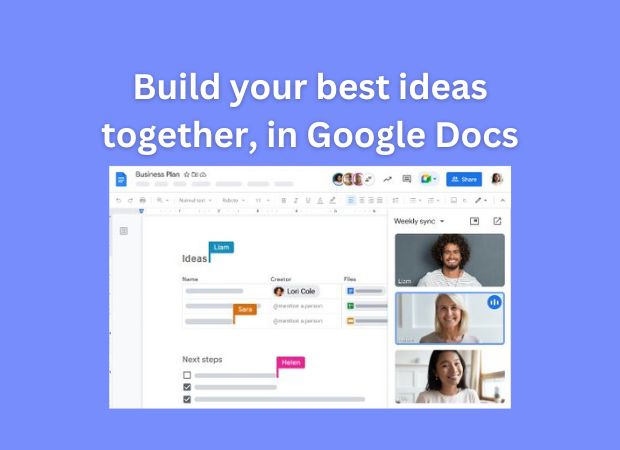
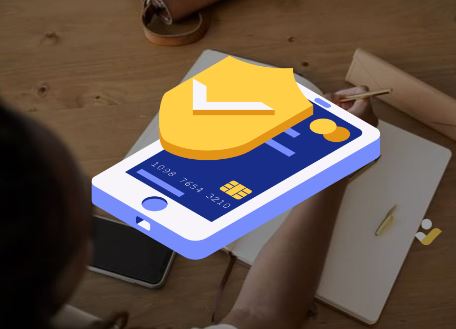

I’m just looking for place to start up a blog with a friend where we talk sports in Chicago as well as other things going on nationwide….just for fun. Any suggestions on sites would be great. Thanks..
Hi, You can start with google blog or WordPress . it`s easy.
You should be a part of a contest for one of the most useful websites on the web. I am going to recommend this website!
buy sildenafil usa